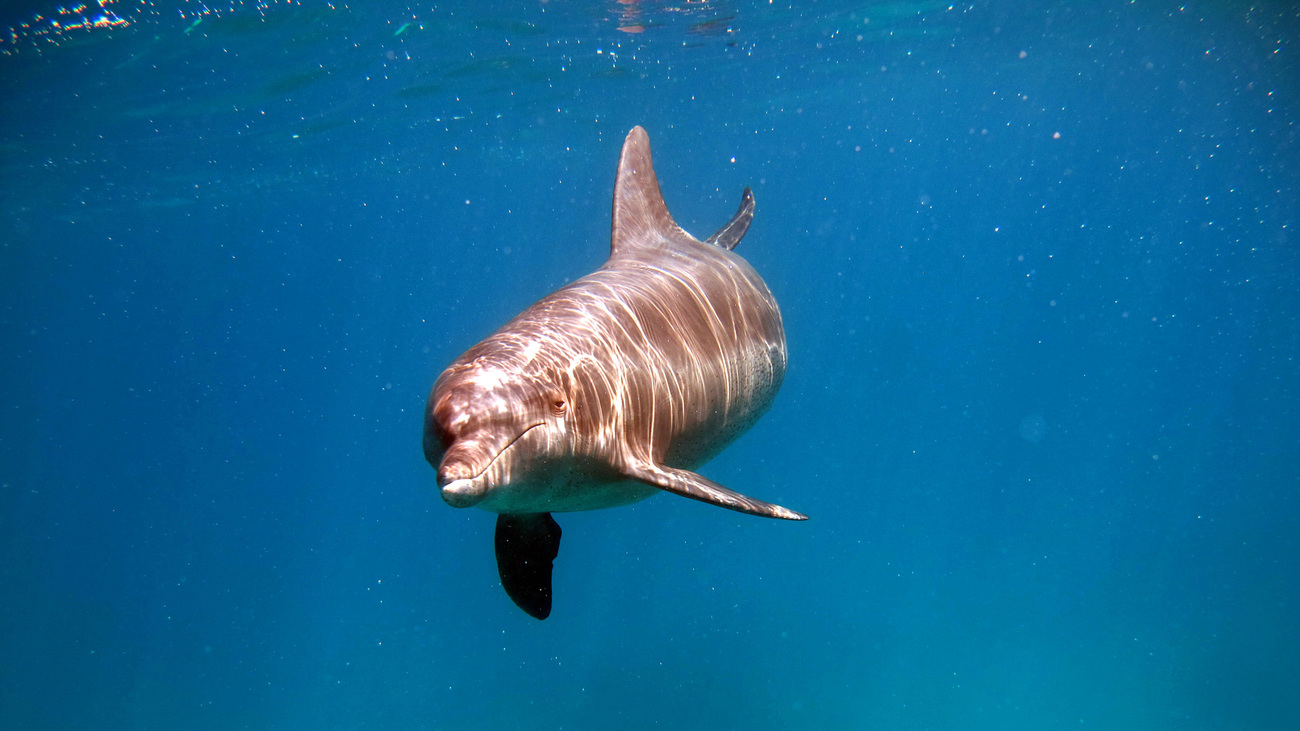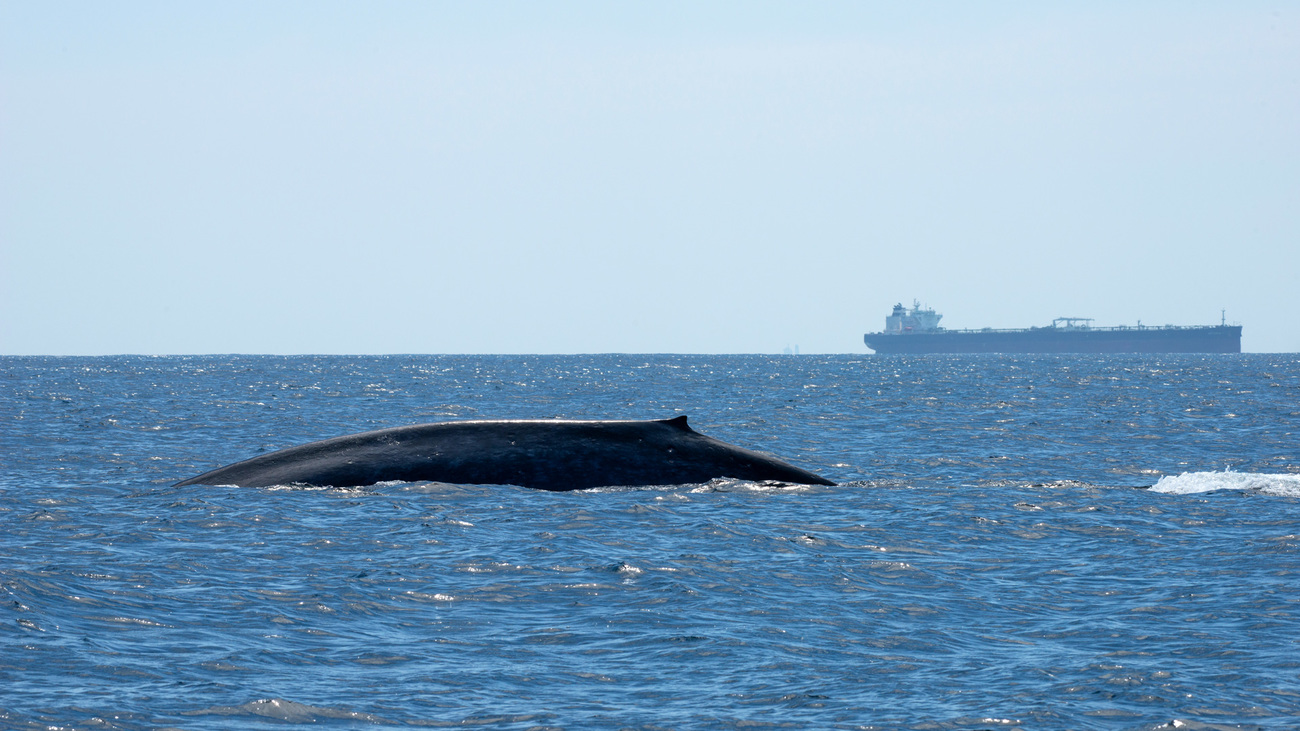Danielle Kessler
Why hasn’t the US ratified the High Seas Treaty?
Why hasn’t the US ratified the High Seas Treaty?
The clock is ticking to protect our oceans. One year ago, the High Seas Treaty was formally adopted by the UN, opening the opportunity to better protect marine biodiversity. IFAW, as a member of the High Seas Alliance, is calling upon all countries committed to signing the treaty, including the US, to urgently ratify it for full implementation of its framework.

What are the high seas?
The term ‘high seas’ refers to the open ocean beyond national jurisdiction, which takes up about half the planet and covers two thirds of the global ocean. This area is crucial to the global environment as it absorbs about 30% of the CO2 produced by humans each year through a biological pump, which relies on organisms from plankton to whales to sequester carbon in the deep ocean. Despite its vital ecological biodiversity and invaluable scientific, economic, social, and cultural benefits, only around 1.5% of the high seas are fully protected from threats of overexploitation, pollution, and anthropogenic climate change.
What are the key elements of the treaty?
The High Seas Treaty—officially called the Biodiversity Beyond National Jurisdiction Agreement (BBNJ)—is the first international, legally binding framework comprehensively protecting these parts of the ocean from ecosystem damage and species loss. It consists of five key elements:
- It enables Marine Protected Areas (MPAs) to be established within the high seas, which will limit the presence of harmful human activities.
- Environmental Impact Assessments (EIAs) provide detailed reports of human activities and their cumulative impacts on the marine environment. Practicing transparency and coordination, they will include mitigation standards and are open to public comment and review by a new Scientific and Technical Body.
- Fair and equitable sharing of benefits from marine genetic resources (MGRs) will balance with freedom of marine science research through obligations to share non-monetary (genetic materials of plants, animals, and microbes) and monetary benefits. This will promote scientific cooperation between countries.
- It supports capacity building and technology transfer to boost developing states’ research capacity (through data sharing, national regulatory frameworks, etc.).
- Finance for capacity building and implementation is covered through adequate funding from contributions of the Parties, the Global Environment Facility, and a special fund from marine science monetary benefits.
Importance for the international community
Ratification of the Treaty by at least 60 countries is required before this framework enters into force. This is vital for achieving the 30x30 commitment to protect at least 30% of the ocean by 2030 through representative, ‘equitably governed systems of protected areas’ (as agreed at the 2022 Convention on Biological Diversity). It also will provide another pathway for countries to achieve targets outlined under Sustainable Development Goal 14 of preventing and reducing marine pollution and overfishing.
Ratification and US involvement
Seven countries have ratified the treaty thus far, but the race for ratification must accelerate. US ratification would be momentous for international cooperation. The US has already signed the treaty, so the next step is ratification from the Senate.
It has historically been difficult for the US to ratify intergovernmental treaties, including environmental agreements. This includes the Convention on Biological Diversity (CBD), which set the 30x30 goals, and the UN Convention on the Law of the Sea (UNCLOS), which initiated a general obligation of nations to protect the marine environment.
One reason for this difficulty is the constitutional requirement that two thirds of the Senate must support ratification, which is difficult to attain due to the Senate’s divided politics. Especially for international environmental agreements, this division is driven by concerns about maintaining US sovereignty and seapower and a discomfort with multilateralism.
Despite having a patchwork of ocean policies aligned with UNCLOS, the US remains a non-participant. The consequences of not joining UNCLOS, CBD, and now the High Seas Treaty for the US include increased international concerns about US commitments to important environmental matters such as climate change. Through a lack of commitment, the US risks undermining the credibility of international treaties. The result may be a loss of trust and weakened international partnerships with other nations that have already shown commitment to such agreements.

Benefits of ratifying the High Seas Treaty for the US
People depend on the ocean for food, jobs, health, and recreation. More than 3 billion people (40% of the global population) depend on seafood as a primary food source, and genetic materials of marine organisms are often used to create pharmaceuticals. As environmental impacts are interconnected, activities in the high seas eventually impact ecosystems and species that we see on our coasts through currents or migrating species. Thus, changes in biodiversity or animal behavior may have negative consequences for coastal food webs and systems on which we depend.
Against the threats of overexploitation and harmful activities, the treaty builds a framework to properly manage and safeguard the ocean, and the US should be a part of that conversation. If the US doesn’t engage and lean into diplomacy, other global powers will guide the discussion and action on these key ecosystem issues (environmental protection, natural resource extraction, marine research) that are critically important to American lives.
Urge your senators to ratify the High Seas Treaty
The High Seas Treaty will ultimately contribute to protection from overexploitation, cleaner oceans, sustainable management of fish stocks, and overall ecosystem restoration. MPAs allow people to use these environmental spaces in ways that do not damage critical ecosystems.
As a member of the High Seas Alliance, IFAW strongly supports the swift ratification of this treaty in time for the UN Ocean Conference in June 2025, taking place in France. With this historic step forward, it is crucial for the US to ratify the treaty as soon as possible.
Take action and urge your senators to ratify the treaty here.
Related content
Our work can’t get done without you. Please give what you can to help animals thrive.